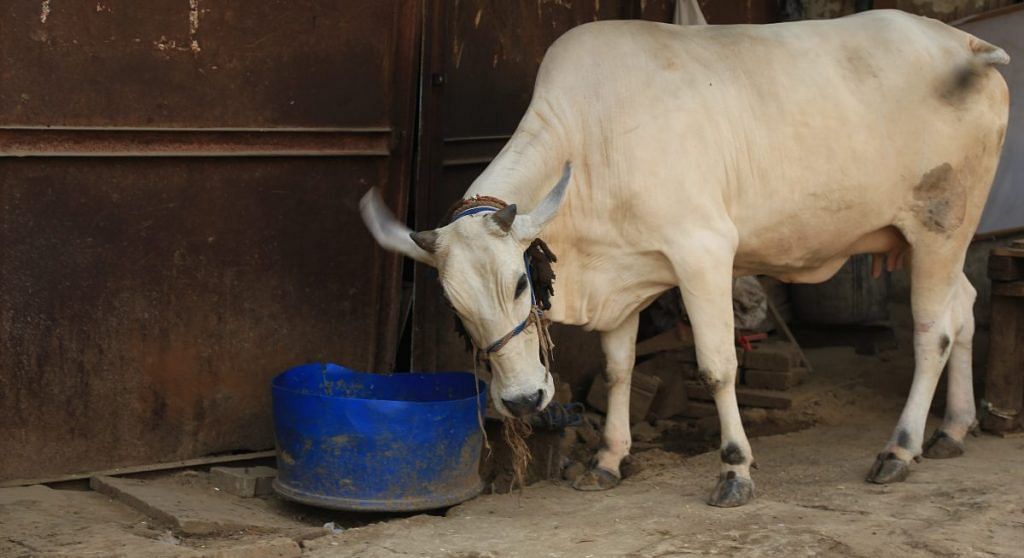New Delhi: Months after Narendra Modi government’s cow agency unveiled a cow dung ‘chip’, claiming that it reduced harmful radiation emitted from mobile phones, to widespread outrage by the scientific community, the Rashtriya Kamdhenu Aayog (RKA) has come up with ‘scientific evidence’ to back the claim.
According to a test report, accessed by ThePrint, the cow dung ‘chips’ led to a 60 per cent reduction in radiation. The samples of the chips, which were prepared under the guidance of RKA Chairman Dr. Vallabhbhai Kathiria, were analysed by the Department of Physics in Saurashtra University, Gujarat.
“The samples of different thickness were tested using the Geiger Muller (GM) counter. The Instrument used for this experiment was the Nucleonix GM Counting system GC601A. The radioactive source used for this experiment was Caesium (Cs137) at the applied voltage 450 V constant,” the report, which was originally published in October, read.
A Geiger Muller counter is a radiation detection and measuring instrument.
According to the test report, the experiment was carried out under a controlled condition and without any substance between the radioactive source and detector.
“After that, the samples of cow dung of different thickness were kept one by one between the source and the detector and the counts in the detectors were observed primarily,” it noted.
The counts per 100 seconds were in the range of 325 and 361, according to the report, depending on the thickness of cow dung. Without any cow dung chip, the radiation reading was 798 counts per 100 seconds.
“The data is found from the primary observation; further parameters are still under evaluation. The detailed experiment can be designed on the basis of this preliminary study,” the report added.
No controls have been mentioned in the report. Furthermore, according to the report, the thinnest cow dung chip blocks more radioactivity than the thickest one.
Also read: Govt’s cow panel drops chapters calling Jersey cows ‘lazy’, linking slaughter with earthquake
‘Positive research on cow products’
In October 2020, Kathiria had unveiled a cow dung ‘chip’ and noted that it would reduce the radiation from mobile phones.
Several scientists and science educators had then asked for scientific evidence to back his claims.
“The test concludes that cow dung can absorb upto 60 per cent of radiation. Research on the benefits of Panchgavya-based products should be conducted with positive attitude for next generation,” Kathiria told ThePrint.
“I can see that Indian cows have a strong potential. With positive research we can conclude some good results and create positive impacts. I am convinced that through Cow Science also we can get ways to save future life on the earth in today’s climate change disasters and Covid 19 like pandemics in future,” he added.
The commission has also written to district education officers of all states asking them to advise the principal of all schools to encourage students’ enrolment for the first-ever cow science promotion exam.
The All India Online Kamdhenu Gau-Vigyan Prachar-Prasar Examination is scheduled to be held on 25 February and is for students of all ages — from primary to university-level — as well as for all citizens.
The questions will be based on cow culture, cow preservation, cow-based products, and the economic, scientific, environmental, cultural and spiritual relevance of indigenous cow. All the participants will be given certificates and the toppers will receive prizes.
Also read: Cow is a constant cool in Indian politics. But BJP’s mix of faith and science troubling
